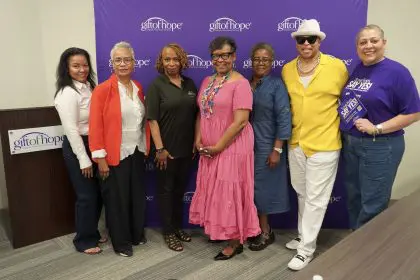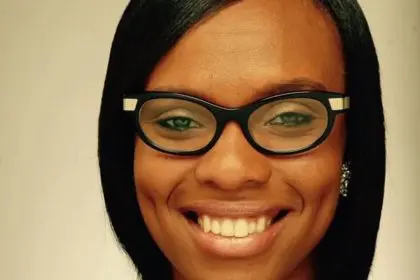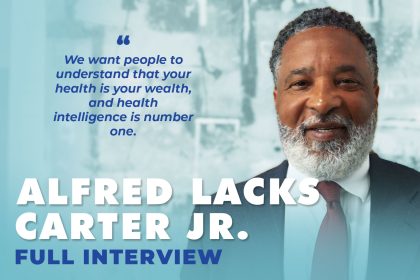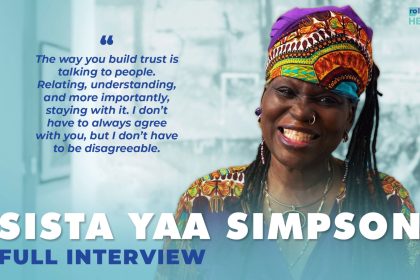
During Black Maternal Health Week (April 11-17), stories that highlight both challenges and strength of Black mothers are being uplifted. Chicago-area pastor Tracey Young’s journey stands as a powerful testament to survival, faith, and purpose after being diagnosed with postpartum cardiomyopathy (PPCM) following her second pregnancy, which led to heart failure. In 2012, she received the Abbott HeartMate II, a life-saving left ventricular assist device (LVAD), which helps weakened hearts pump blood. Initially told she wouldn’t live to see her daughter turn 5, Young has defied medical odds for over a decade and was recently qualified for a heart transplant. The Chicago-area resident, mother of two, and community advocate now uses her voice to educate other women about PPCM and the importance of proactive healthcare through her non-denominational ministry, But God Ministries, and her women’s empowerment organization, W.E.A.P. (Women of Excellence, Ambition, and Purpose).
Can you take us back to the moment when you received your postpartum cardiomyopathy diagnosis, and what was going through your mind?
I had given birth to my second child, which was a girl, her name is Amber and I noticed, after giving birth I was kind of out of breath. I actually thought that I was developing asthma, and so I went in for my six-week checkup after giving birth and I talked to the doctor, the OB-GYN and I said, I’m having a difficult time breathing.
He paid attention, but kind of brushed it off, because at the time I was obese, and so it’s just automatically assumed because you’re overweight, that’s why you can’t breathe.
I had scheduled a doctor’s appointment with my primary care physician for the next day, and when I went into the office she took my blood pressure, and it was extremely high. They didn’t take my blood pressure the day before, when I went for the OB-GYN, because then they would have got notification of what was occurring in my body. As my primary doctor listened to my heart, she heard the fluid rushing through like a river, and they immediately called 911, and then transferred me to the hospital.
I was told at that time by the cardiologist, now I’ve just given birth, my daughter is 6 weeks old, and my son was 2, and I was told at that time that I would not live to see Amber turn 5.
How did you find strength during a time when you were told that you wouldn’t live to see your daughter grow up?
I’m a woman of faith, extremely heavily involved in the church, and I just couldn’t believe that this was happening to me. I didn’t want my husband to be left as a widower — I read the Bible, I attend church services, I pray.
Why do you think the doctor brushed off your initial concern?
There’s a stereotype and I have experienced this as an African American, morbidly obese woman throughout time I have encountered situations where being perceived as, you’re fat, you’re overweight, and you’re uneducated, and I have exhausted myself by proving that I’m educated. I have a bachelor’s degree, a master’s degree, a doctorate degree, but because I’m fat and because I’m Black, I’m not of no use, I’m not worth it.
Even when I was pregnant with Amber, I remember going to the doctor telling the doctor throughout the pregnancy I can’t breathe, and he told me, ’cause you fat.
I had no idea about heart failure, heart failure diagnosis, any of that. I just accepted it, I didn’t realize the importance of checking your blood pressure. Because if I had, I would ask “Why didn’t you check my blood pressure?”
After being diagnosed I start educating myself and researching and learning. I didn’t just take the medical advice, I went and read things for myself so that I could get a better understanding, so I could ask questions, and that’s what I try to inspire and educate other women to do today.
What does your current wellness routine look like? How has it changed?
I’ve been married — it’ll be 33 years in August — to a wonderful, wonderful, supportive husband and right now we go to Planet Fitness at least three to four times per week. Sometimes I push it because my husband is eight years older than me, and so he does it out of love.
We go to the gym at 3:30 in the morning, you say why so early? When I’m there at 3:30, I’m there with the seniors, and I get my choice of machines. I’m able to just relax, not worried about being body shamed, not worried about being in someone’s videos because my gym regimen doesn’t look like theirs. I’m there, taking my time, monitoring my breathing.
My husband and I eat according to our blood type. Honestly, and I’m not recommending this for anybody, this is what works for us. When we began to eat according to our blood type, I found myself no longer sluggish. I had so much more energy, I was able to just be more vibrant during the day, complete tasks without losing focus.
How can we, as a community, better support Black maternal health year round, and not just during awareness weeks?
We have to reach people where they are. One of the outlets that I’ve seen, like you have your magazine, this is great. There’s so many success stories out there in many diagnoses, not just heart failure, many, many diagnoses, but we have to get the word out. We have to visit local churches, libraries, schools, get the education systems involved where we’re educating our youth. So by the time they make it into their teens and twenties, they recognize the importance of better health, better eating, exercise, and learning your family history.
















